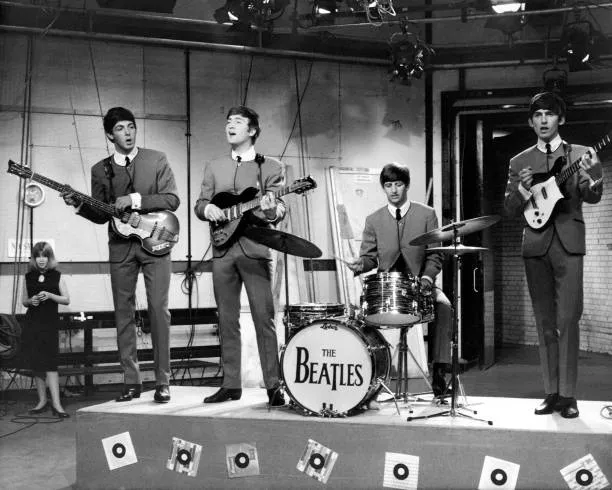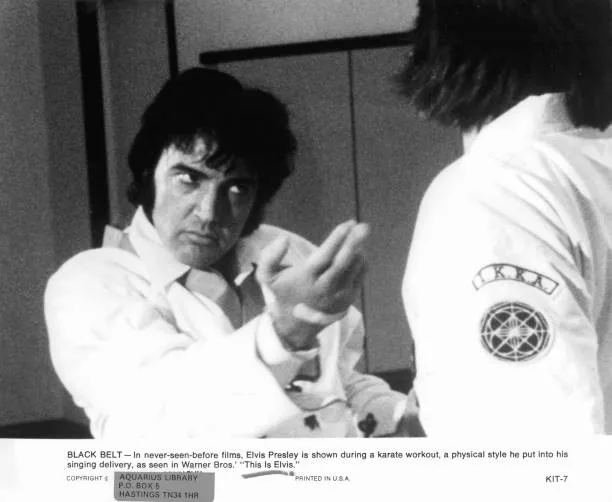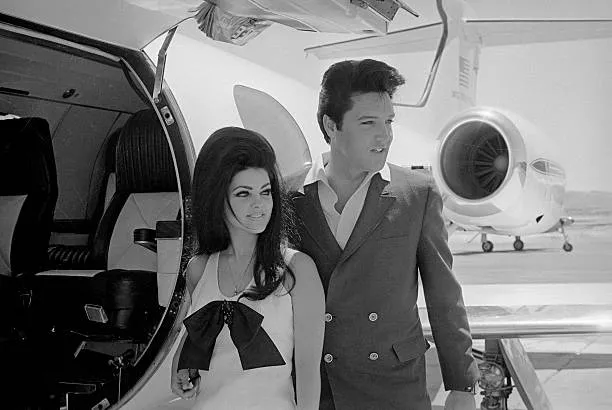When one thinks of Elvis Presley, the first images that probably spring to mind are his iconic hip swivels, leather jackets, and the euphoric screams of his adoring fans.
But to truly understand the King of Rock 'n' Roll, one must delve into the less visible but profoundly influential domain of gospel music.
Elvis Presley's gospel songs encapsulate a significant yet often overlooked facet of his musical journey, demonstrating a deep and abiding connection to the spiritual tunes that shaped his life and career.
The Early Roots: A Tupelo Tale
Elvis Aron Presley was born in Tupelo, Mississippi, on January 8, 1935, into a humble household. From an early age, Elvis was enveloped in the sound of gospel music.
His parents, Gladys and Vernon Presley, were ardent churchgoers, and the family regularly attended the Assembly of God Church.
It was here that Elvis first encountered the uplifting harmonies and passionate deliveries that characterize gospel music.
Church services in Tupelo were often lively affairs, filled with heartfelt singing and fervent praise.
The young Elvis would watch, listen, and absorb these performances, laying the groundwork for his later musical career.
His introduction to gospel music was not just passive listening; it was formative, shaping his understanding of rhythm, melody, and emotive expression.
The Memphis Influence: Shaped by the King
In 1948, the Presley family relocated to Memphis, Tennessee, a move that would prove pivotal for young Elvis.
In Memphis, the vibrant music scene, teeming with blues, rhythm and blues, country, and gospel, sparked Elvis’s curiosity and broadened his musical horizons.
Memphis was also home to the gospel quartets that Elvis would later join and emulate.

Groups such as the Blackwood Brothers and the Statesmen Quartet were fixtures in local churches and on radio stations.
Elvis, fascinated by their harmonies and stage presence, would often attend their performances and even hang around backstage, soaking in every note and gesture.
Professional Crossroads: Sun Records and Gospel Roots
In 1954, Elvis made his first significant foray into the music industry by recording with Sun Records.
Though his initial recordings ("That's All Right," "Blue Moon of Kentucky") were distinctively rockabilly, the imprints of gospel music were clearly evident.
The vocal flourishes, the emotional intensity, and the spiritual undertones in his voice hinted at his gospel roots.
Elvis's 1956 recording of "I Got a Woman," originally by Ray Charles, showcased his ability to blend gospel with other genres seamlessly.
His interpretation of the song was infused with the fervor and spirit of gospel, highlighting how deeply this music had influenced him.
A Soulful Heart: Gospel Albums and Awards
Elvis's gospel passion wasn't just a footnote in his career; it was a driving force that led to the creation of some of his most cherished works.
In 1957, Elvis released "Peace in the Valley," his first gospel EP. The overwhelming success of the EP paved the way for three full-length gospel albums: "His Hand in Mine" (1960), "How Great Thou Art" (1967), and "He Touched Me" (1972).

"His Hand in Mine" featured a collection of gospel songs that were near and dear to Elvis's heart. Tracks like "Milky White Way," "Known Only to Him," and "Joshua Fit the Battle" radiated a sincere, soulful energy that struck a chord with listeners, both religious and secular.
"How Great Thou Art" earned Elvis his first Grammy Award, with the album's title track and the song "Crying in the Chapel" standing out as particularly moving interpretations.
His ability to convey deep spiritual messages through his music was recognized and celebrated widely.
"He Touched Me" continued this tradition, blending traditional hymns with modern gospel songs.
Pieces like "Amazing Grace" and the titular "He Touched Me" were not just recordings; they were heartfelt performances that revealed Elvis's enduring love for gospel music.
The Influence on Live Performances: A Gospel Touch
Gospel music wasn't confined to Elvis's studio recordings; it was a vibrant part of his live performances as well.
During his iconic '68 Comeback Special, he included a heartfelt rendition of "If I Can Dream," a song inspired by the civil rights movement and imbued with gospel influences.
His Las Vegas and tour performances often featured gospel medleys, giving concertgoers a glimpse into the spiritual wellspring from which his energy and passion flowed.
Songs like "Why Me Lord" and "How Great Thou Art" were staples in his live sets, allowing him to showcase not just his vocal prowess but his deep-rooted spirituality.
The Impact on Modern Music: Elvis’s Gospel Legacy

Elvis Presley's gospel music has left an indelible mark on contemporary music, influencing countless artists across various genres.
His ability to blend the spiritual intensity of gospel with the modern rhythms of rock 'n' roll created a blueprint for future musicians.
Artists like Bob Dylan, Bruce Springsteen, and U2 have acknowledged Elvis's gospel music as a significant influence on their work.
Even within the realm of contemporary Christian music, his interpretations of traditional hymns continue to inspire and resonate.
The Gospel Truth
Elvis Presley's gospel songs were more than just a side project or a dabbling in another genre; they were a testament to his deep, abiding faith and his profound connection to the music of his upbringing.
Gospel music was the soil from which the King of Rock 'n' Roll grew, and its influence permeated every aspect of his career.
From his early days in Tupelo and Memphis to his global superstardom, gospel music remained a constant source of inspiration and solace for Elvis. It shaped his vocal style, performance techniques, and even his worldview.
In revisiting the gospel roots of Elvis Presley, we uncover a layer of his persona that is deeply human, profoundly spiritual, and abundantly rich in musical heritage.



